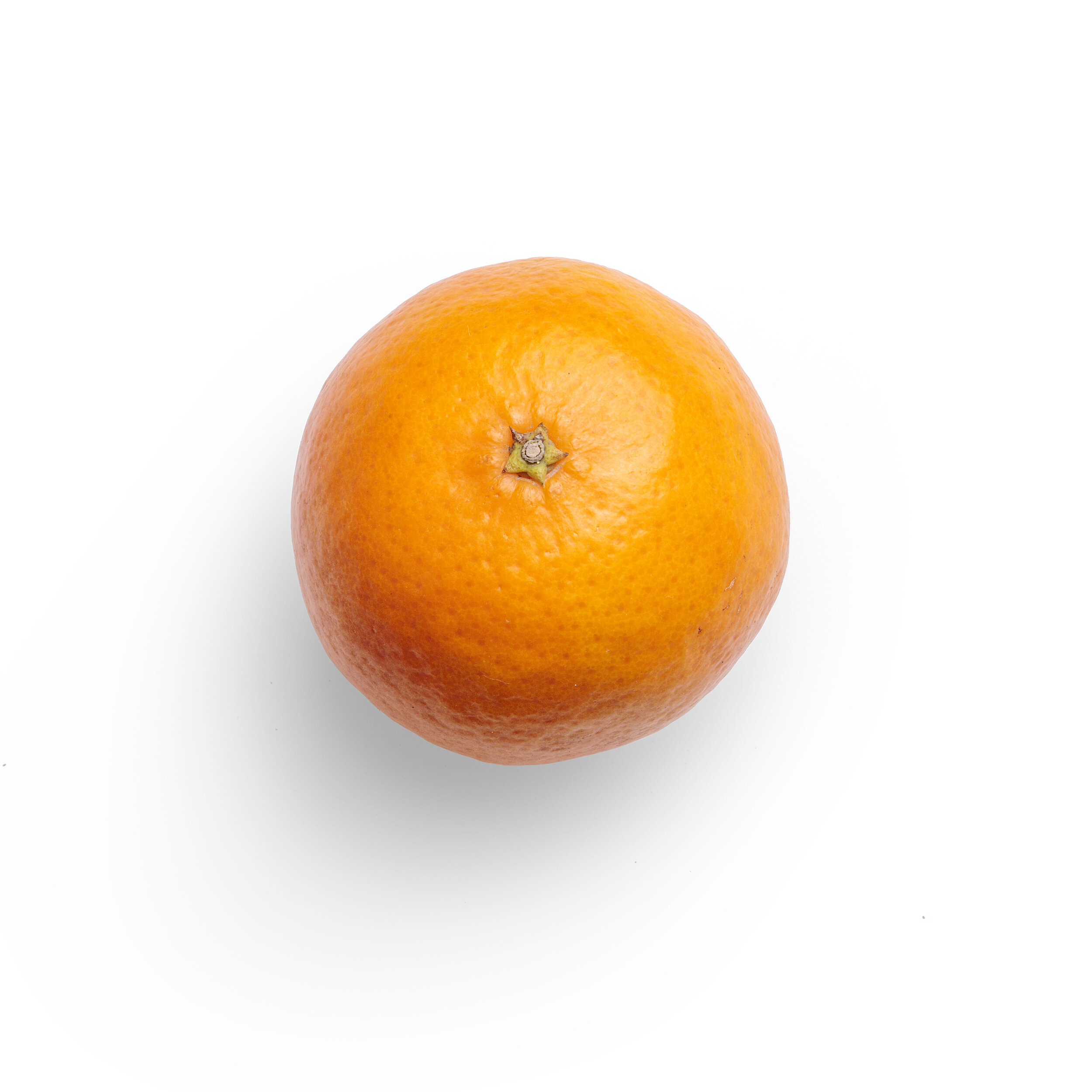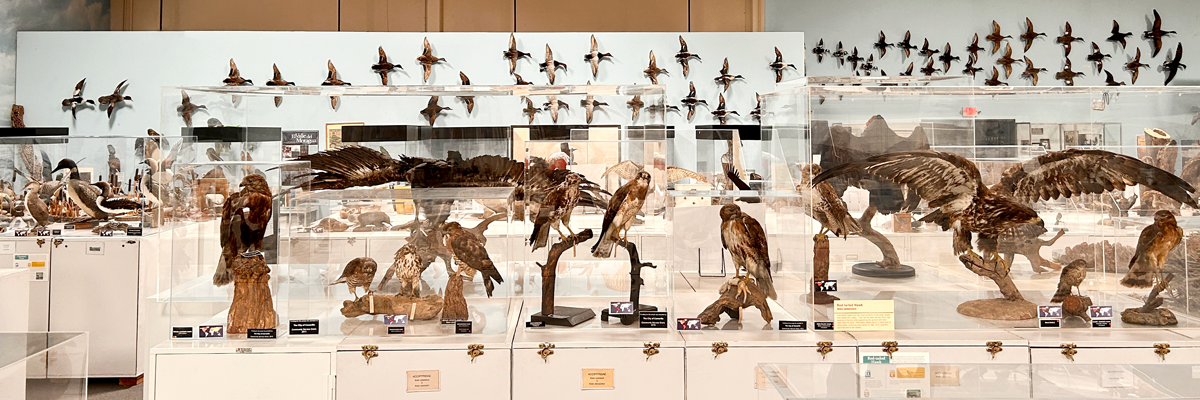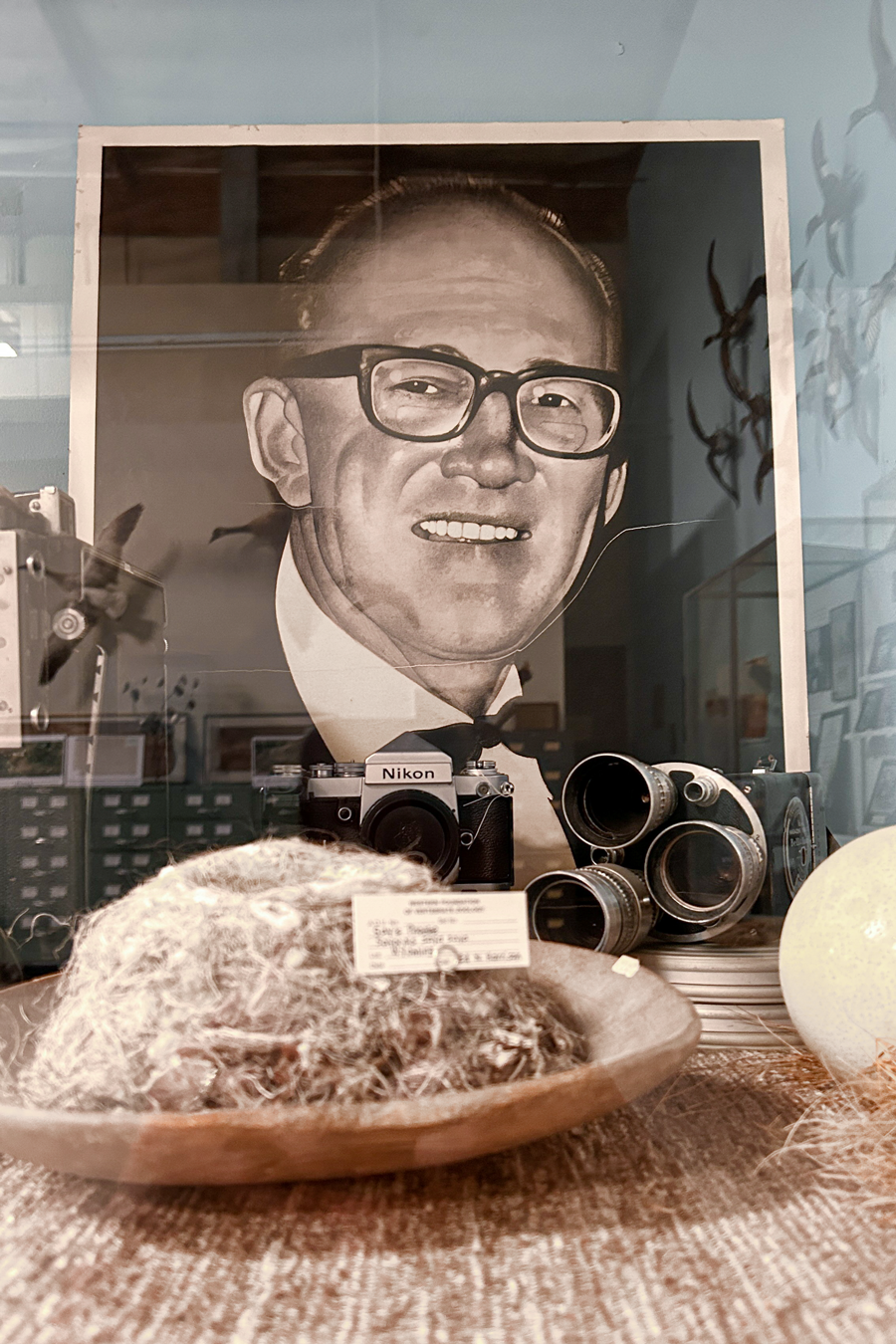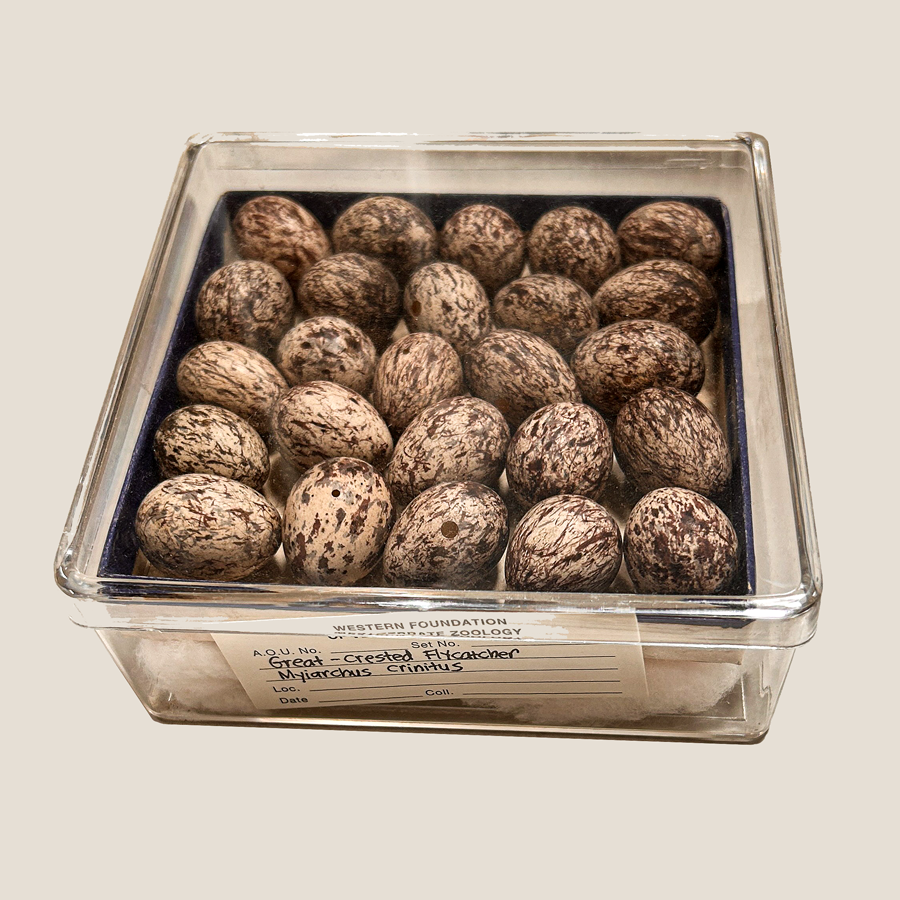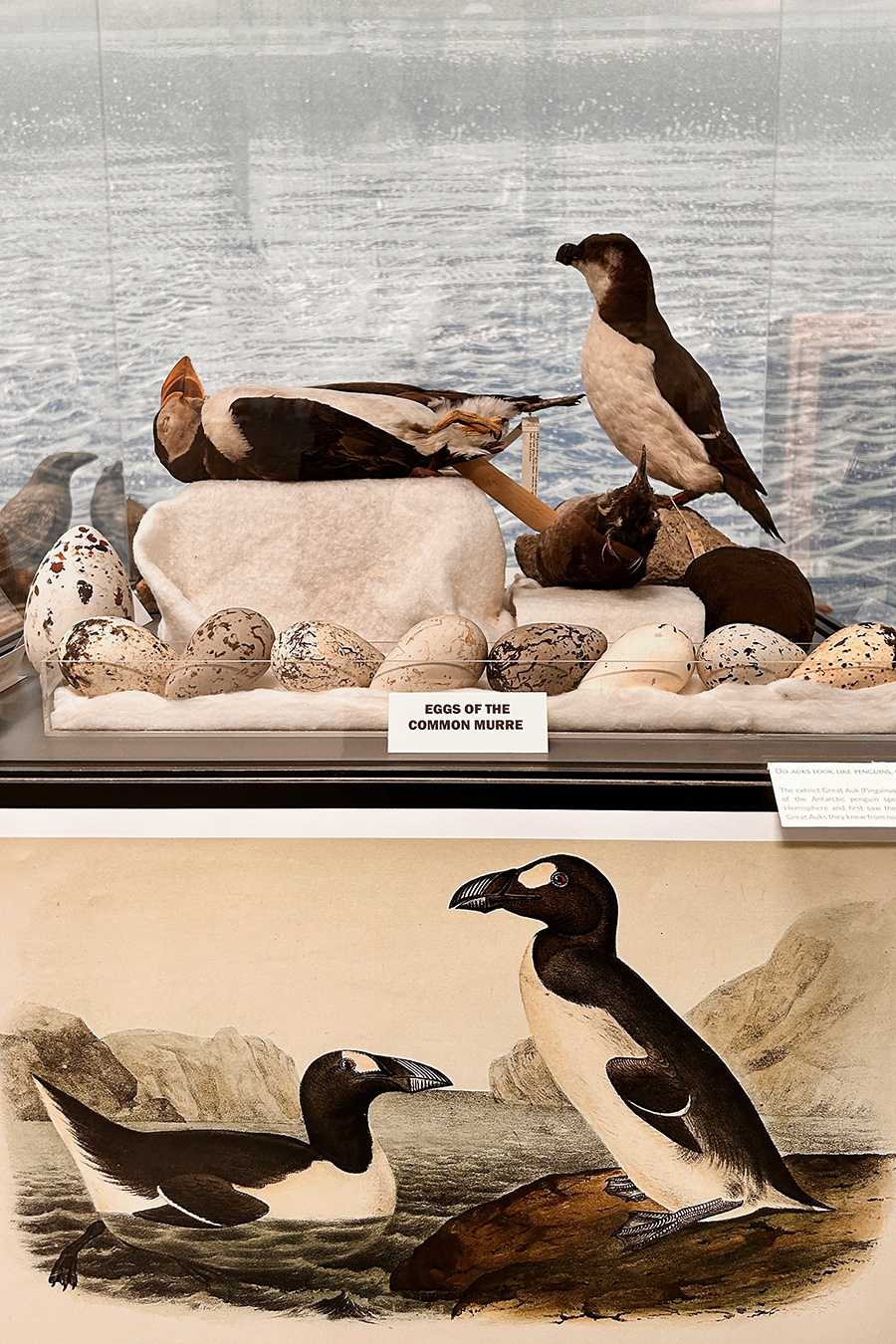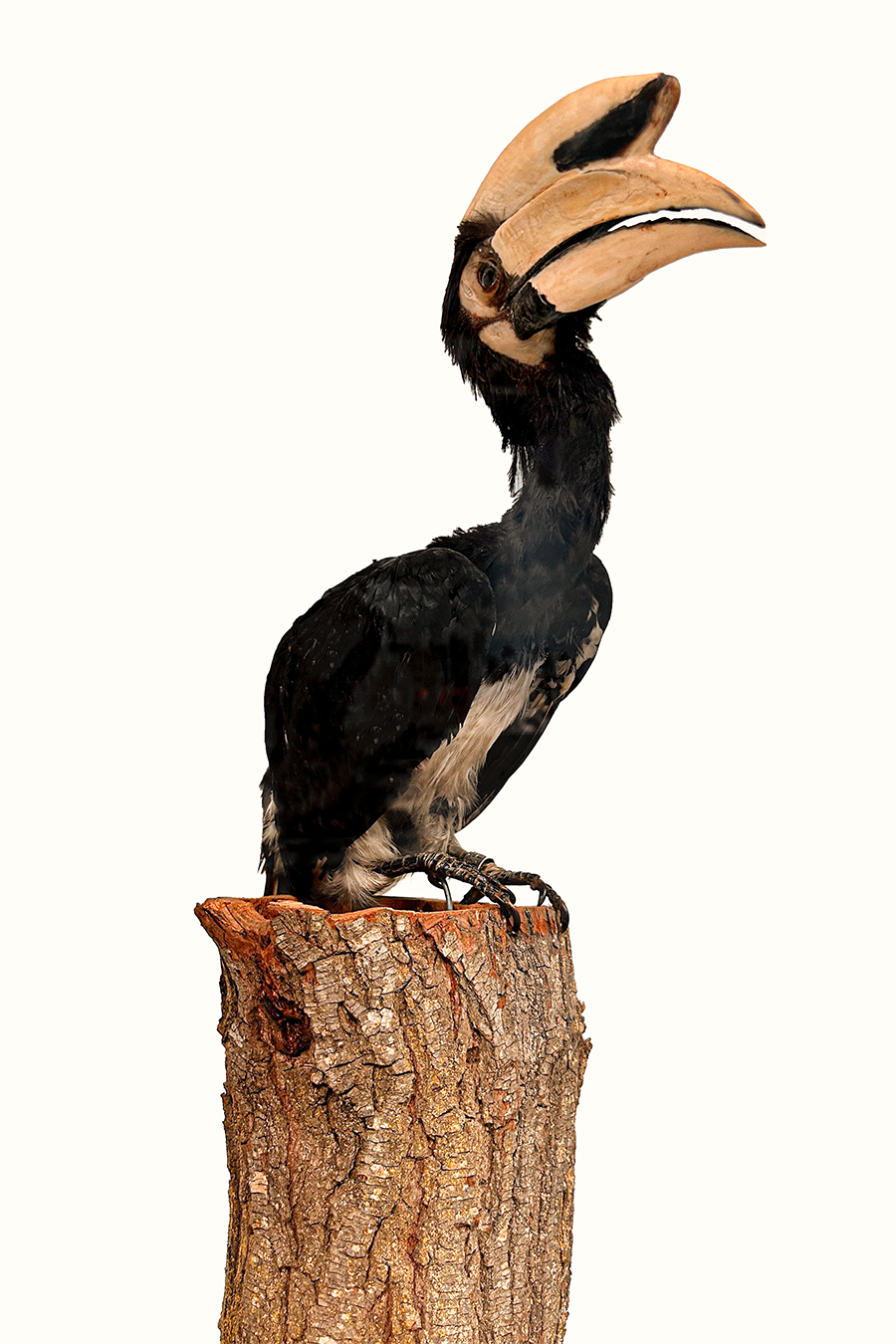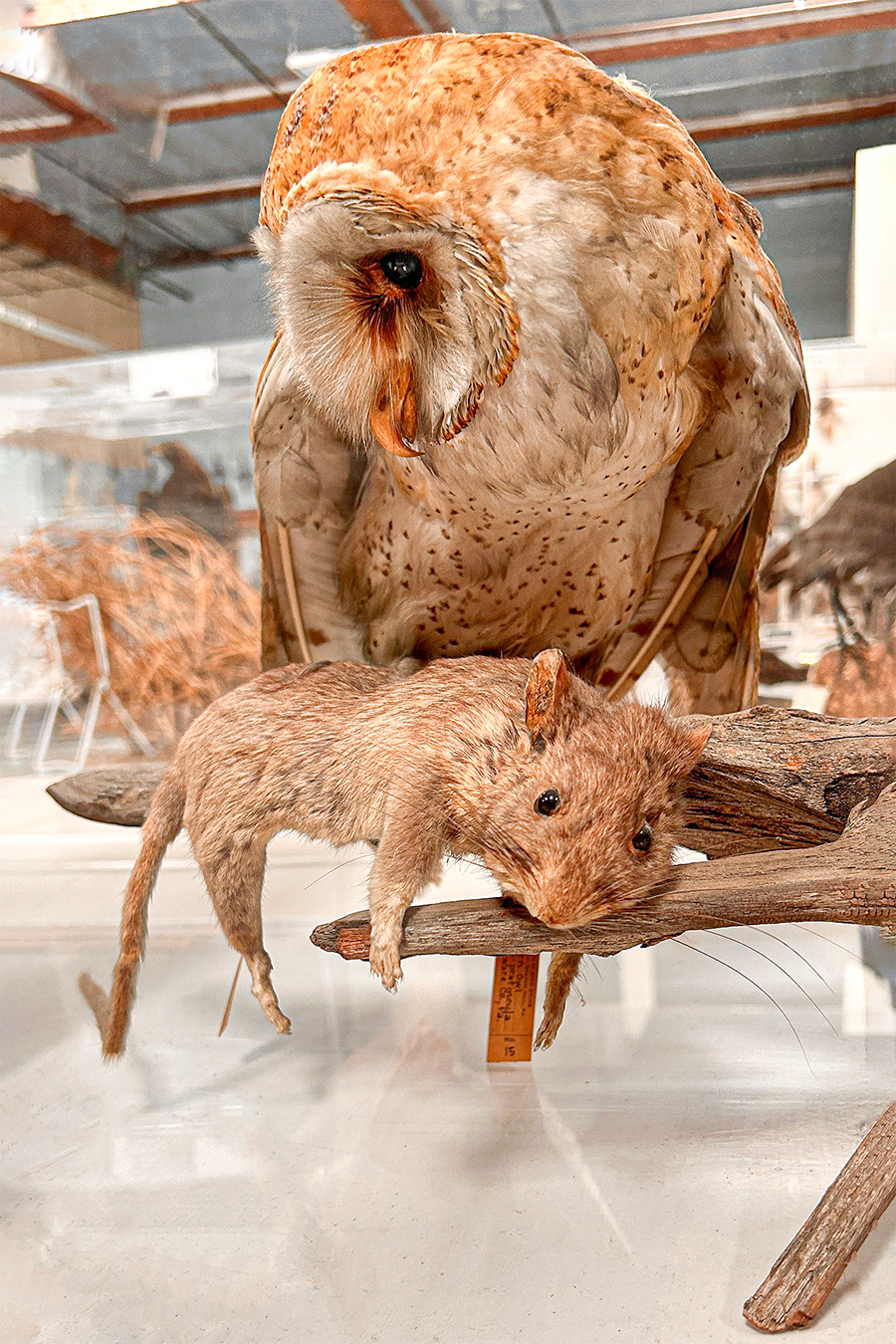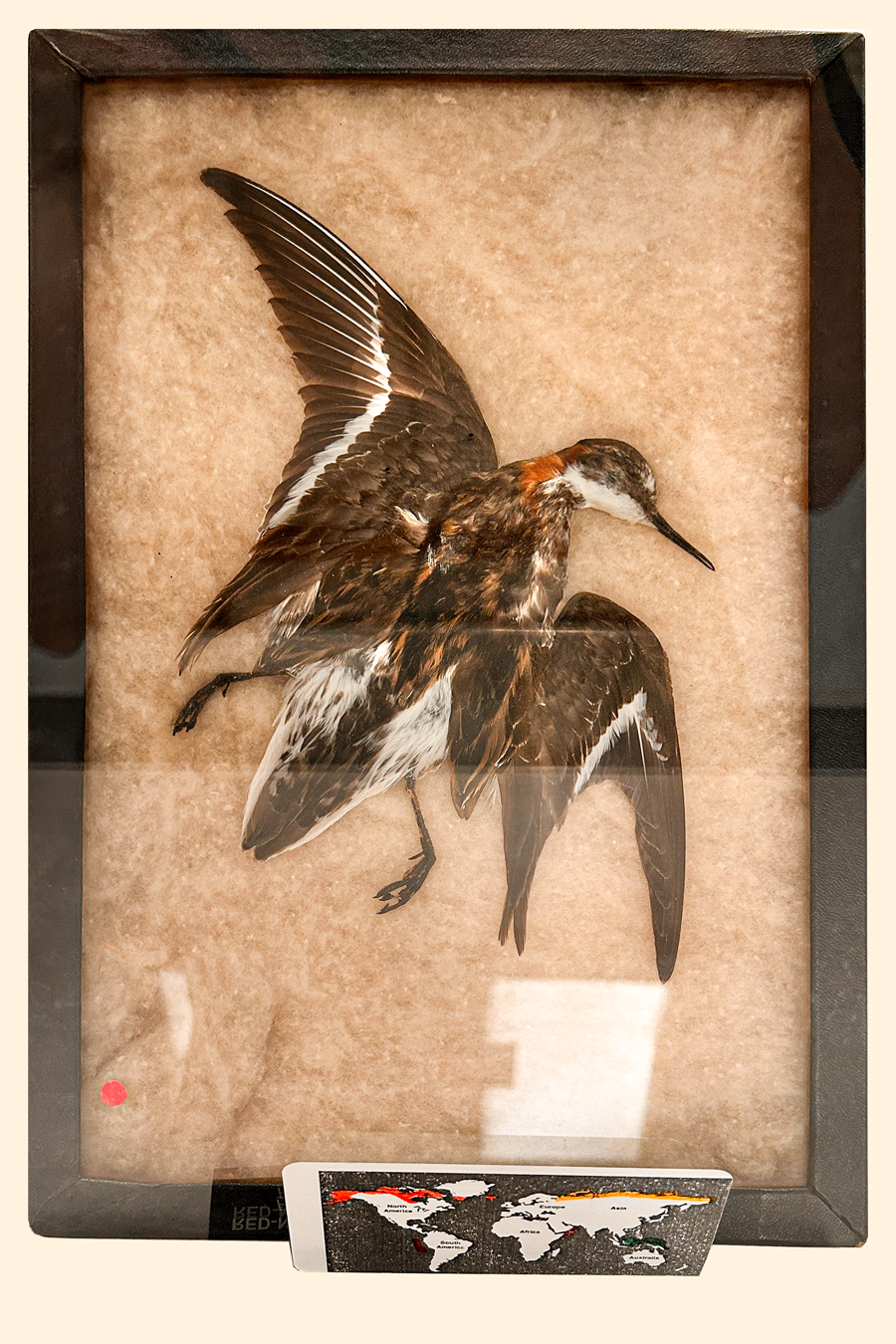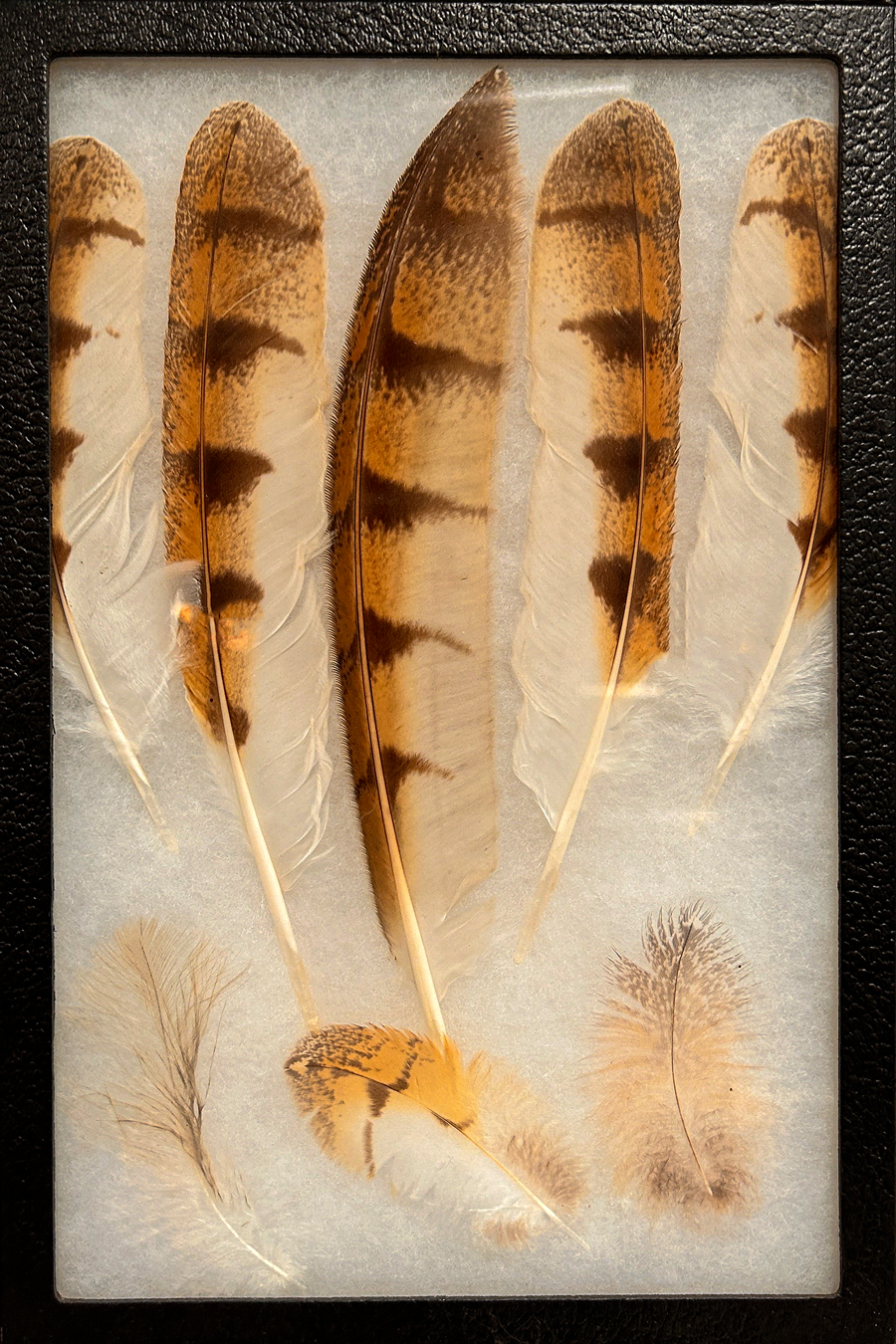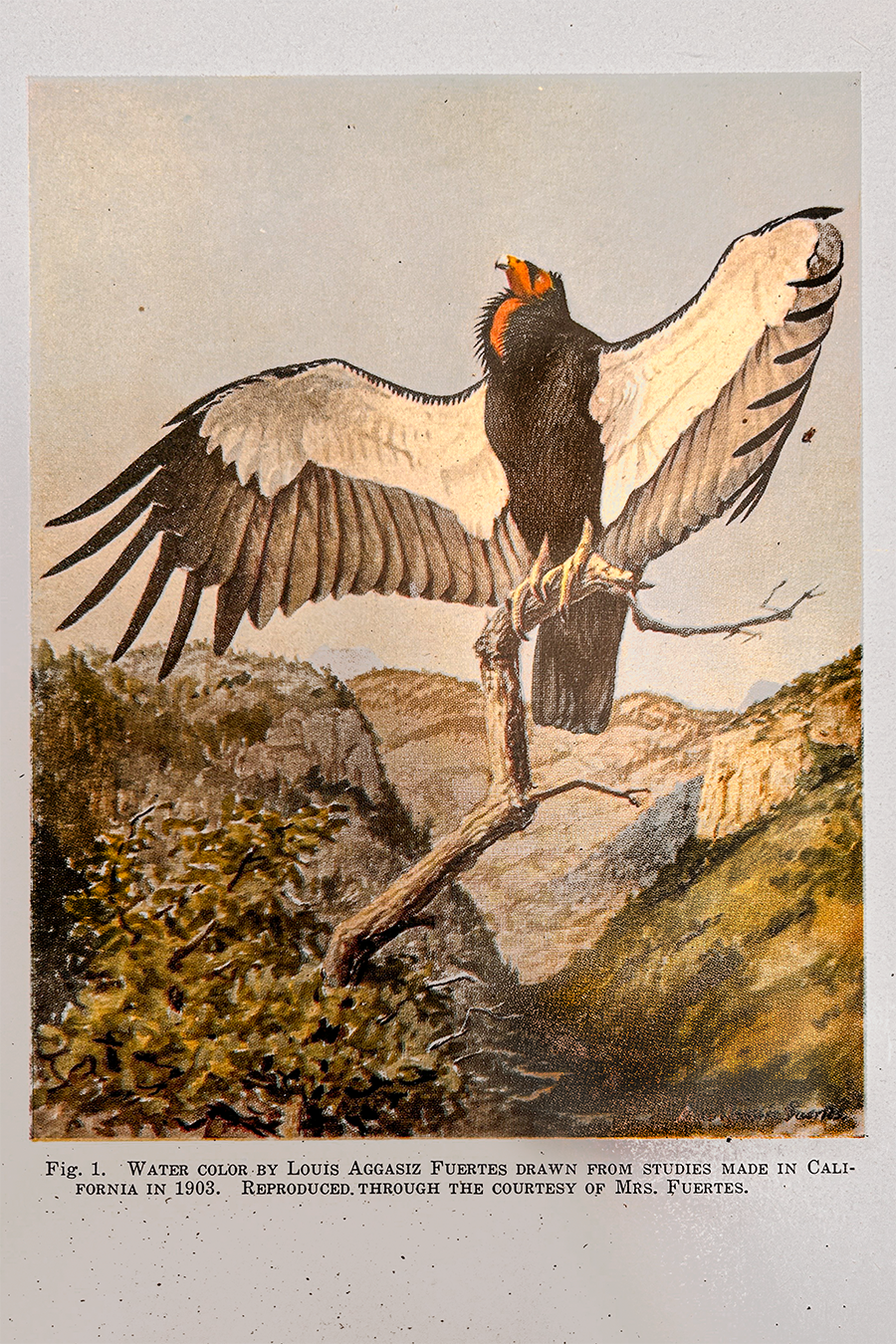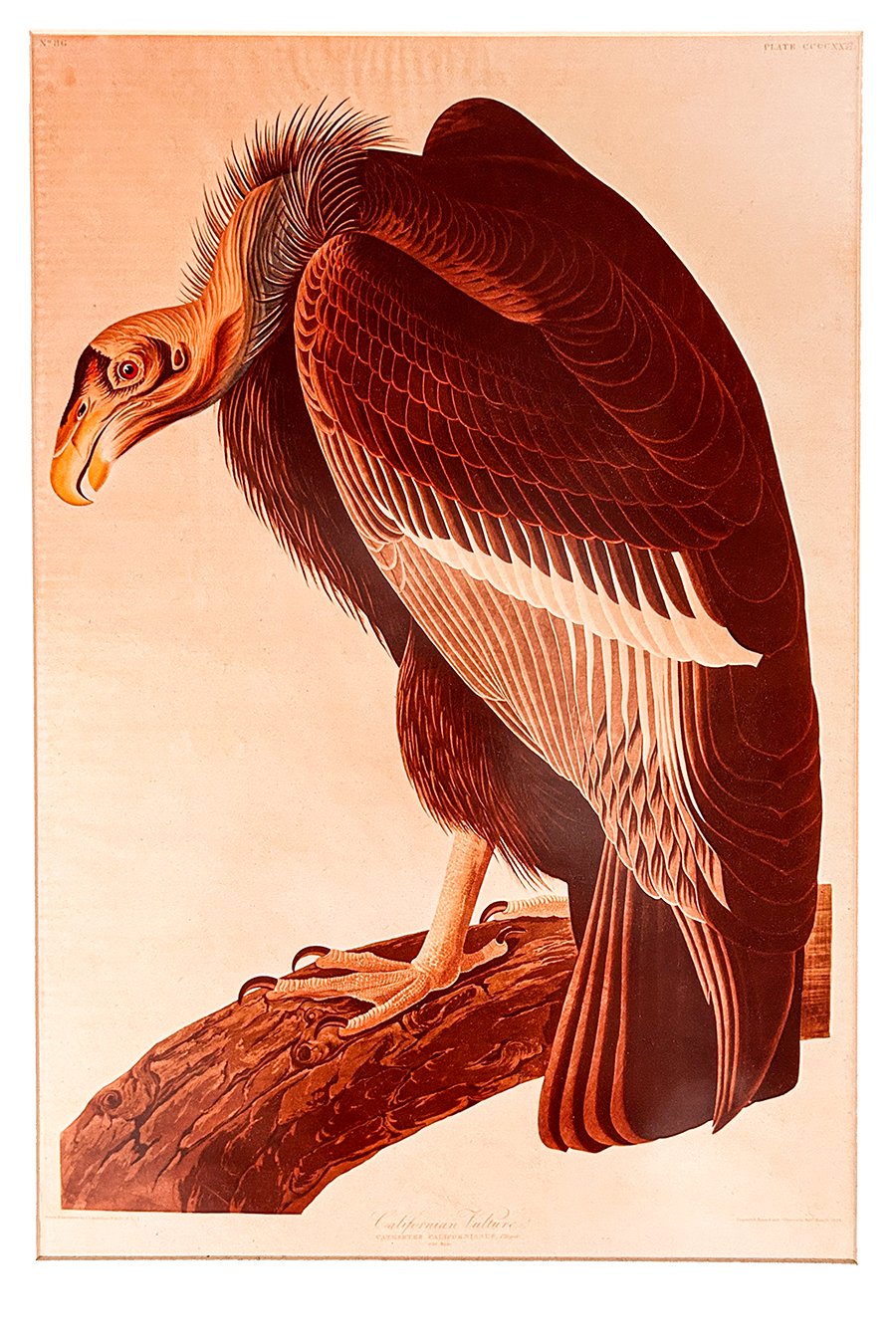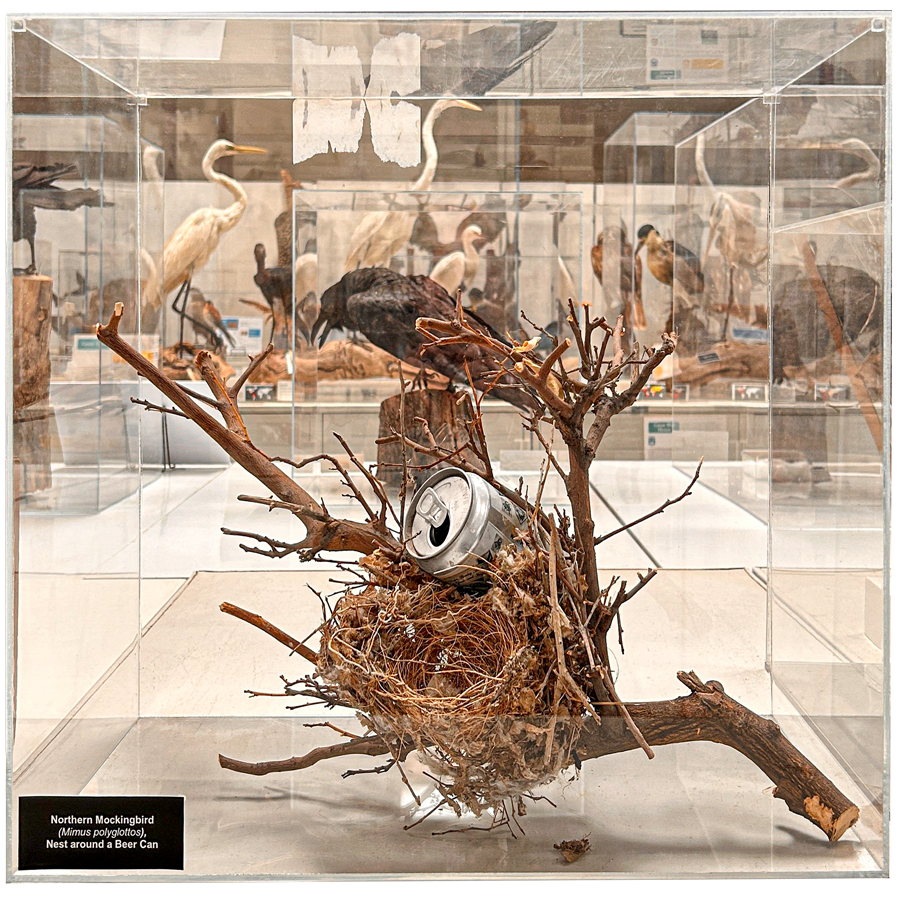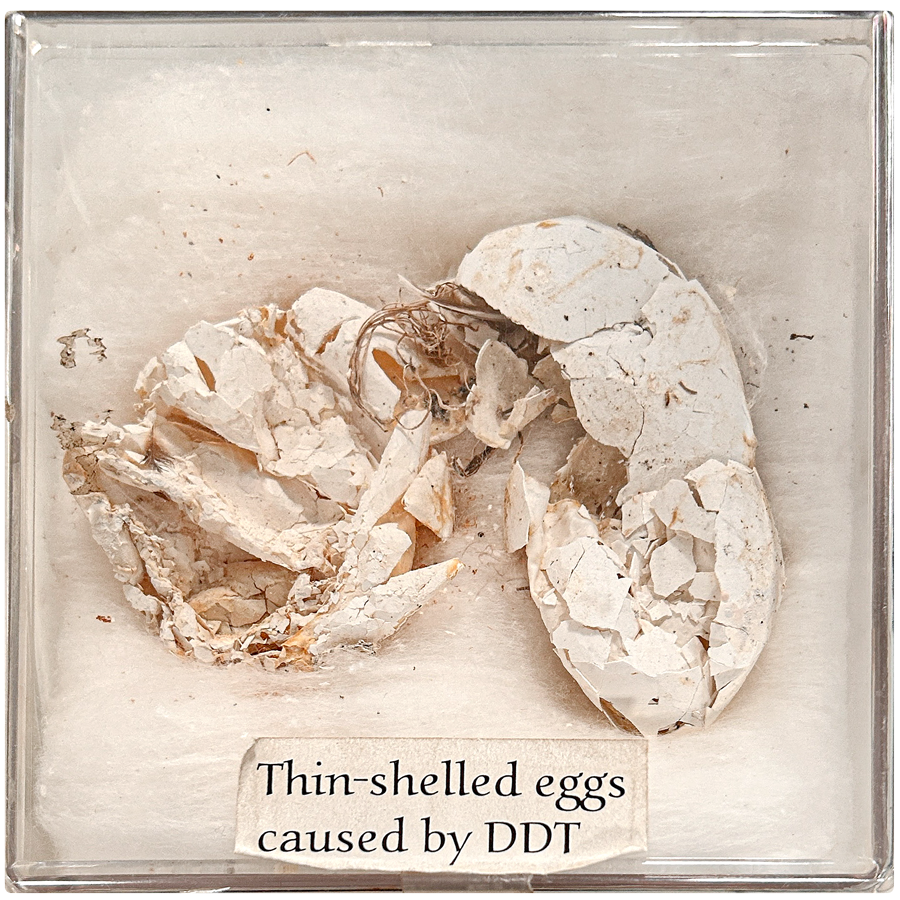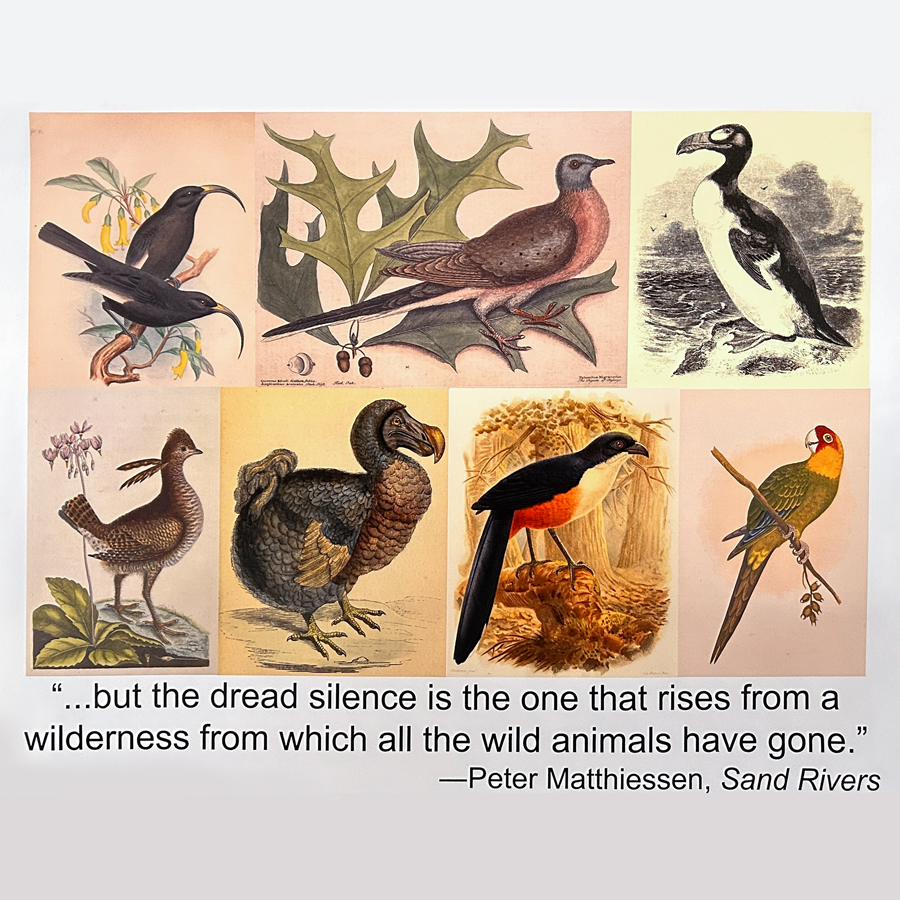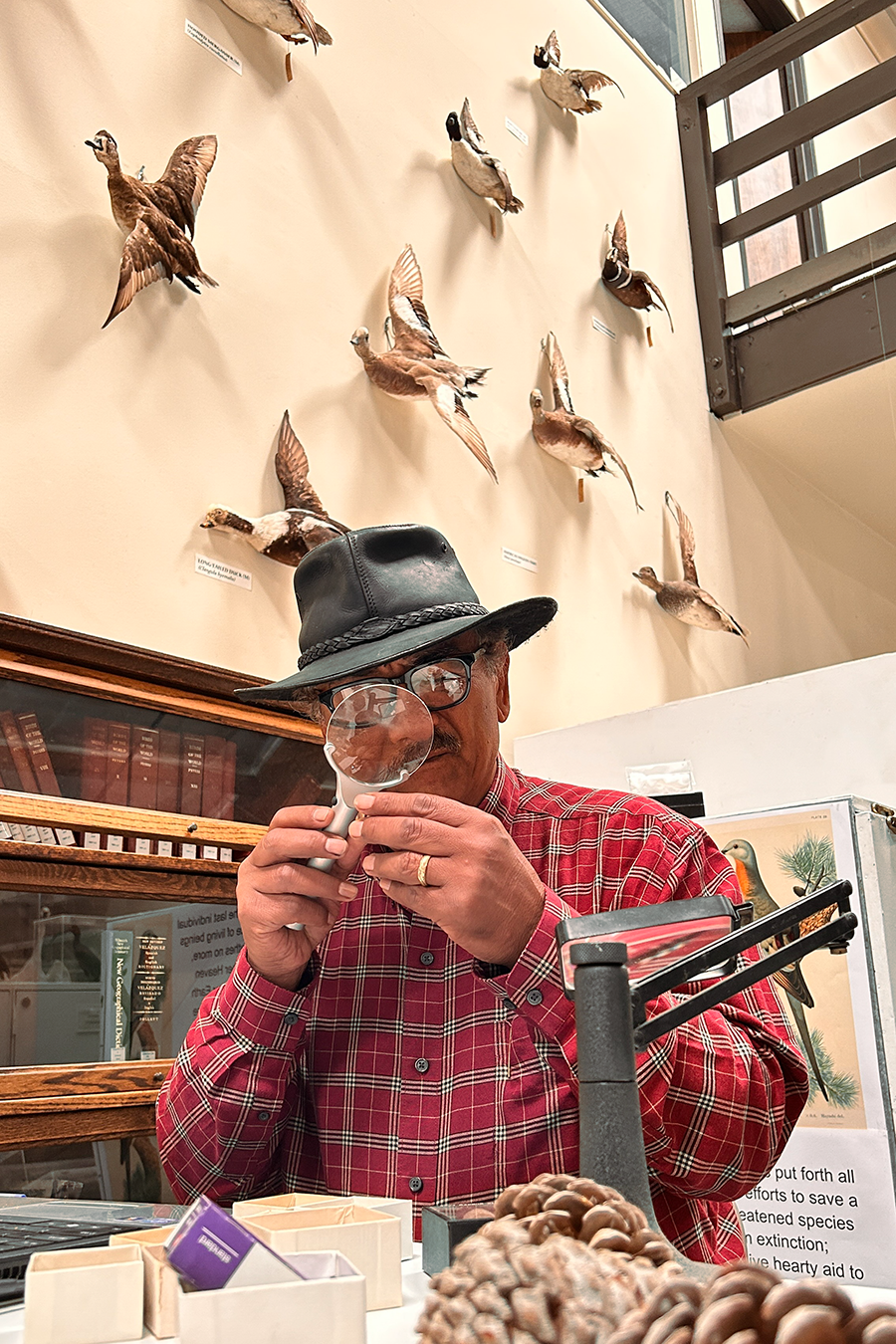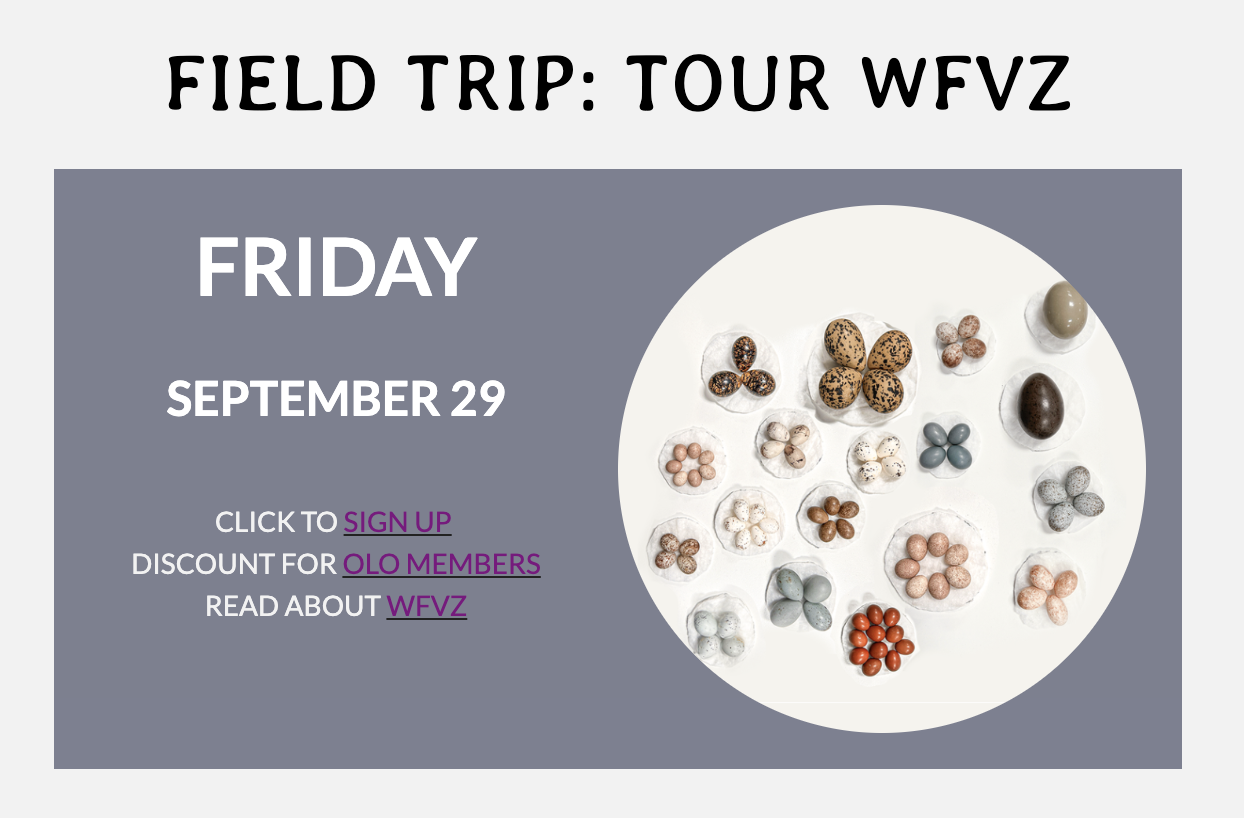The Western Foundation of Vertebrate Zoology
By Jules Weissman with Assistance from Serena CornellONE MILLION EGGS…
A PHOTO ILLUSTRATION
In a nondescript industrial park in Camarillo, between a display fabricator and a printer repair shop, lies one of Ventura County's most remarkable museums: The Western Foundation of Vertebrate Zoology (WFVZ).
The name is slightly deceptive. Beyond the odd stuffed bobcat or fossilized dinosaur egg (and a stunning array of minerals for sale), WFVZ is dedicated to only one class of vertebrates: the Aves. The collections room is a broad, high-ceilinged warehouse, one wall wrapped in a pleasant blue sky mural, the others adorned with birds. Waist-high cabinets form the aisles of the room. In them, on them, and all around them are more than one million eggs, 18,000 nests, and some 56,000 bird study skins (taxidermy, but for scientists).
ORINTHOLOGICAL ORIGINS
WFVZ emerged in 1956 from the collective vision of a group of passionate individuals determined to establish a national repository for bird specimens. Chief among these devoted founders was Ed Harrison. Born amidst the rugged beauty of Cody, Wyoming, in 1914, Ed migrated with his family to Los Angeles, California, around age thirteen. His father acquired land that would eventually be part of the University of California. Teenage Ed spent his days gathering the remnants of avian life — skins, eggs, nests, an illegal hobby today. Under the wing of J.R. “Bill” Pemberton, a friend steeped in the realms of ornithology and geology, Ed captured rare film footage and photographs of the California Condor during frequent trips to the Sespe wilderness from 1939 to 1941. He dedicated his life to condor conservation, sharing their work through lectures and showcasing their high-quality color film in condor news and educational cinema.
wfvz founder ed harrison
Ed Harrison's comrades, Frances Roberts, Bill Pemberton, and William Sheffler, played pivotal roles as the first Board Members of the WFVZ. Their shared vision birthed from a yearning to establish a sanctuary to safeguard their prized possessions and to erect a repository for abandoned egg and nest collections — left orphaned in the wake of a collector's passing or discarded by institutions no longer interested in the art of curating such delicate treasures. In Ed's eyes, the value of eggs, nests, and bird skins transcended mere adornments for scientific study; they bore the weight of preserving avian species across the globe, providing invaluable resources for researchers, conservationists, and enthusiasts alike.
various egg sets and nests
Ed funded the acquisition of significant private egg and nest collections from the likes of Nelson Hoy and J. Warren Jacobs from Pennsylvania, Robert D. Etchecopar from France, and the Californian trio of George Brem, Nelson Carpenter, Col. L. R. Wolfe, and Fred Truesdale. Donations and permanent loans streamed in from nearly twenty institutions. Louisiana State University, the Los Angeles County Museum of Natural History, San Diego Natural History Museum, and Santa Barbara Museum of Natural History all surrendered fragments of their storied collections. These treasures encompassed a timeline stretching from the mid-1800s to World War II.
SERENA CORNELL INSPECTS THE WOOD DUCK EGGS
Until the early '90s, the entirety of WFVZ's avian treasures lived in a modest "Museum" concealed within the confines of Ed's abode in Brentwood, California, and the recesses of an office building in Westwood.
As WFVZ's collection grew, so did the need for expanded storage facilities. The Foundation faced a daunting challenge in ensuring the preservation of these delicate specimens. In 1992, WFVZ's stalwart employees, René Corado and Clark "Sam" Sumida, took on the Herculean task of relocating six hundred cabinets teeming with avian wonders. Eggs, nests, and study skins were delicately packed and transported about an hour north. Not a single egg was broken, a testament to their meticulous care and reverence for these precious artifacts.
Working seven days a week, making multiple trips a day, René says the endeavor took two weeks. This move marked a significant milestone, cementing WFVZ as one of the world's most extensive repositories of avian materials.
PROTECTING HABITAT
Bird nests transcend being mere structures; they serve as sanctuaries for nesting, nurturing young, and ensuring the survival of bird species. We bear an active responsibility to protect these vital habitats.
When engaging in tree trimming or landscaping activities, it is crucial to be mindful of bird nests. Before commencing any work, familiarize yourself with local regulations and guidelines. Consulting experts can provide invaluable insights, ensuring the preservation of bird nests while completing necessary tasks. We can make a significant difference in protecting these delicate ecosystems by exercising caution and incorporating bird-friendly practices.
CONSERVATION EFFORTS
Against the backdrop of declining bird populations due to human activities, WFVZ assumes a crucial role in bird conservation and research. The Foundation's ongoing bird species research projects focus on key study areas such as the Santa Clara River, Channel Islands, and Santa Monica Mountains. These endeavors, undertaken in collaboration with local organizations, government agencies, and researchers, seek to monitor bird populations and restore vital habitats.
The WFVZ recognizes that the future of avian conservation hinges on collective action. By working hand in hand with diverse stakeholders, the Foundation aims to raise awareness and implement effective conservation strategies. Through education and advocacy, WFVZ strives to safeguard these majestic creatures, preserving their habitats for generations to come.
HOW TO VISIT WFVZ
The Western Foundation of Vertebrate Zoology stands as a testament to the beauty and diversity of birds worldwide, and we are so lucky to have this in our backyard.
WFVZ is currently open for guided tours by appointment only. Thanks to a grant, they are extending the available hours starting July 2023. Make your reservation here.
WFVZ Bird Museum and Research Center
439 Calle San Pablo
Camarillo, CA 93012 USA
805-388-9944
Museum Director: Dr. Linnea Hall
